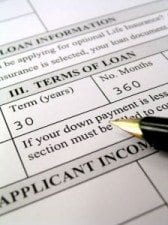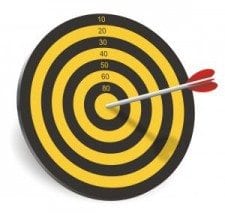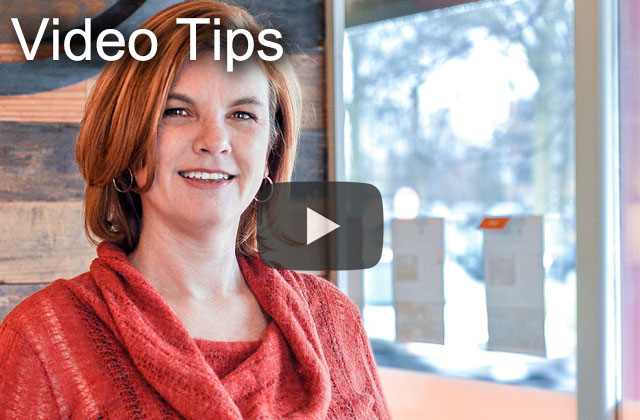Don’t miss the beginning of this Series:
Part 1 – Is Your Home Overpriced?
Part 2 – How Long Should You Wait before Reducing Your Price?
If you want to stay informed of St. Louis housing market information, subscribe to the Arch City Homes weekly email so you don’t miss any posts!
How Much Should You Reduce the Price of your Home?
If you are trying to sell your home and are ready to drop the price to get it sold, the big question becomes “How much should you reduce the price?”

Get Buyers to React Differently to Your Home:
The first thing you need to consider is that small price drops may get your home emailed out to buyers who have signed up to monitor price reductions for an area, but if they rejected your home at the old price, a small price reduction won’t be enough to make them see it from a fresh perspective.
A house that was rejected by buyers at $200,000, is still going to be rejected at $199,000.
Imagine you want to a store and found a new winter coat that you liked. The price is $200, and you just think that it is too expensive. Two weeks later you receive an announcement that everything in the store is going on sale for 1% off. Your dream coat is now $198. Would that be enough to get you back to the store? Probably not. What if it was dropped 5% to $190? Still not enough?
But at 25% off, or $150 in this case, you might take another look. You might even rush out to make sure you got one before someone else bought the last one in your size.
The same principles apply to price reductions for homes.
Common practice in real estate circles is to drop the price 1-2% if the home is getting a lot of showings but no offers AND decent feedback.
However, if the home is getting just a few showings, the majority of the feedback is that the house comes across as just average or the feedback is slightly negative, then the house probably needs a 5% price reduction.
If the home isn’t getting showings at all, you might need to consider a 10% price reduction.
Making Several Small Price Reductions vs One Large Price Drop:
One strategy that some real estate agents use is to make regular small price reductions. The approach assumes that if you continue making small drops, that you will eventually hit the right price and someone will make an offer. It assumes that by making a big drop at once, you might have dropped it more than you needed to.
But this approach can backfire in a declining housing market.
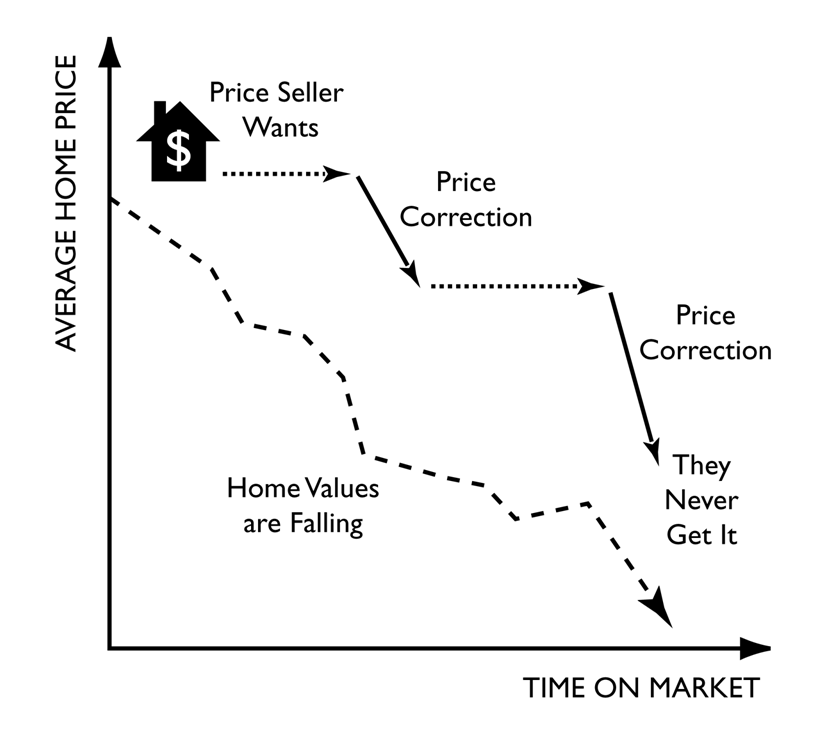
When a house starts out overpriced and the market values are falling, a small price drop just follows the market down, keeping the home overpriced the whole time. When values are falling, time is against you. Making small price drops every 3 or 4 weeks will drag out the time it takes to sell and will mean a lower price in the end.
St. Louis Sold Homes – How Much Did They Drop Their Price?
I’m not one to assume that what agents believe and share with each other when discussing the market is necessarily accurate. Most agents ask other agents what they think and assume that if everyone has the same perception, it must be true. Very few agents actually look at the numbers.
But I’m not the typical agent. Sometimes what everyone thinks is simply not backed up by data.
So, I went back to the MLS data to see what is really happening in the St. Louis housing market.
How big of a price drop did it take for sellers to get an accepted contract?
In Part 2 of this series I explained that I am tracking all of the competition near our current listings. The chart below examines EVERY home in the markets I am currently tracking that got an accepted contract after reducing the price.
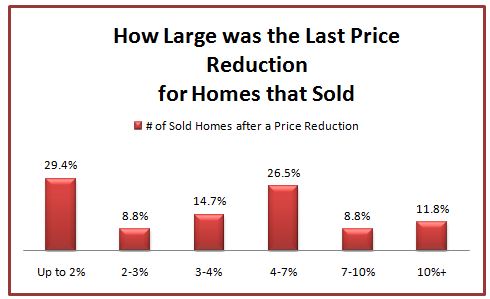
About 1 in 4 home sellers were able to sell with a small price reduction of less than 2%. Another 1/4 made price reductions of 2-4%. The remaining half got serious about getting their homes sold and made a large price reduction of at least 4%.
The average size of the price drop for all of the sellers was 4.4%.
Keep in mind that these are the successful sellers. They made a price drop which got a buyer to make an offer that the seller could accept.
I’m not surprised at the wide range in effective price reductions. If you go back to what I said earlier, some homes are getting showings and positive feedback, and are almost at the right price. Others are way off and need a big price drop to get into the market.
One More Thing to Think About:
Before you go straight with percentages when you are ready to make a price drop, you also need to take into account that buyers tend to search for homes in $25,000 price ranges. In fact, many of the online home searches only allow buyers to set price ranges in $25,000 increments.
Most buyers will consider a house that is priced just slightly above their maximum price if it will give them everything they want. However, they won’t even know about the house if it doesn’t come up in their searches.
If your house is priced at $205,000, the buyers looking for homes between $100,000 – $200,000 won’t even see it.
At the same time, a buyer who is looking for homes up to $225,000 will be seeing homes that are nicer than your home. My guess would be that they are looking at homes from $150,000 to $225,000 or $250,000. It’s tough to make that $205,000 house look like a star in this crowd.
If you are close to a $25,000 price point break, you should consider dropping your price to make it into the lower price bracket. You’ll open yourselves up to a lot more people.
Why are there so many homes priced at $219,900 instead of $220,000?
Some people think that it will FEEL cheaper to a buyer at $219,900 than $220,000. But that also means that it feels like a much bigger drop for a seller to agree to a price that might be in the $200s if it was priced at $220,000 than $219,900.
The truth is that it probably doesn’t make a real difference.
One last thing to consider is that in a world where tons of buyers search for homes while they are at work, there is a real advantage of pricing a home at $200,000 rather than $199,900. Since the default order for online home searches is to list the most expensive homes first, the higher priced homes will be on page 1 of the search results. For employees who just have a few minutes to search before their boss walks around the corner and they get back to work, it might mean the difference between them seeing your listing and missing it.
Hire Me:
I specialize in selling homes regardless of whether they will be the hot listing to hit the market or if they have a challenge that makes it much harder to sell.
I also work with buyers who want to find the home of their dreams, but don’t want to overpay.
If you are thinking of buying or selling a home in the St. Louis area, give me a call at 314-265-8073 and let’s talk about your options.



